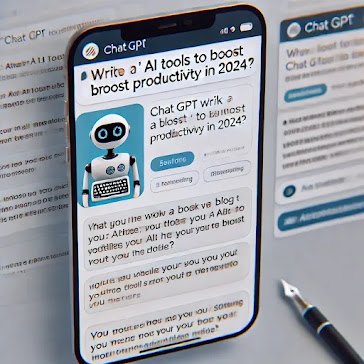AI Brand Comparison: Which One Fits Your Needs Best?
Artificial Intelligence (AI) has transformed industries, enhanced daily tasks, and streamlined workflows. But with so many AI brands on the market, it can be tough to figure out which one is the right fit for your needs. Today, we’ll compare three of the leading AI platforms – OpenAI, Google AI, and Microsoft Azure AI – to help you make an informed decision.
1. OpenAI
Overview:
OpenAI is renowned for its groundbreaking models like GPT (Generative Pre-trained Transformer) and DALL-E. With a focus on research and open collaboration, OpenAI provides tools that are both developer-friendly and powerful.
Features:
Natural Language Processing (NLP): Models like GPT-4 excel in conversational AI, content creation, and language translation.
Image Generation: DALL-E creates stunning AI-generated visuals based on textual input.
API Accessibility: Easy-to-use APIs for developers to integrate into applications.
Best For:
Content creators and developers who need advanced NLP and image-generation tools.
Startups building innovative AI-powered apps.
2. Google AI
Overview:
Google AI, backed by one of the world’s largest tech giants, specializes in research and practical AI tools. Its integration with Google’s ecosystem makes it a go-to for many businesses and individuals.
Features:
AI for Search: Google Bard, its conversational AI, competes with OpenAI’s ChatGPT in delivering human-like responses.
Vision AI: Advanced image recognition and analysis tools for industries like healthcare and retail.
TensorFlow: An open-source machine learning library widely used for custom AI development.
Best For:
Enterprises leveraging the Google Cloud ecosystem.
Developers focused on machine learning and data science projects.
3. Microsoft Azure AI
Overview:
Microsoft Azure AI brings AI to businesses at scale, offering a comprehensive suite of tools for various industries. With seamless integration into Microsoft products like Office 365, it’s tailored for corporate environments.
Features:
Cognitive Services: Prebuilt APIs for vision, speech, and language tasks.
Azure Machine Learning: Tools for building, deploying, and managing machine learning models.
Collaboration with OpenAI: Exclusive access to OpenAI’s GPT models for Azure customers.
Best For:
Enterprises seeking scalable AI solutions with built-in security.
Teams already using Microsoft’s ecosystem for productivity and collaboration.
Comparison Table
| Feature | OpenAI | Google AI | Microsoft Azure AI |
|---|---|---|---|
| Best For | NLP, Creativity | Search, Vision AI | Enterprise AI |
| Key Strength | Chatbots, Images | Ecosystem Tools | Scalability |
| Integration | API-based | Google Ecosystem | Microsoft Suite |
| Developer Tools | API and SDKs | TensorFlow | Azure ML Studio |
Conclusion
Choosing the right AI brand depends on your goals. OpenAI is ideal for cutting-edge creative tools and NLP. Google AI excels in machine learning and ecosystem integration, while Microsoft Azure AI offers unparalleled enterprise solutions. Evaluate your use case, budget, and tech stack to make the best choice for your AI journey.
Let us know which AI platform you prefer in the comments below!
.jpeg)





Comments
Post a Comment